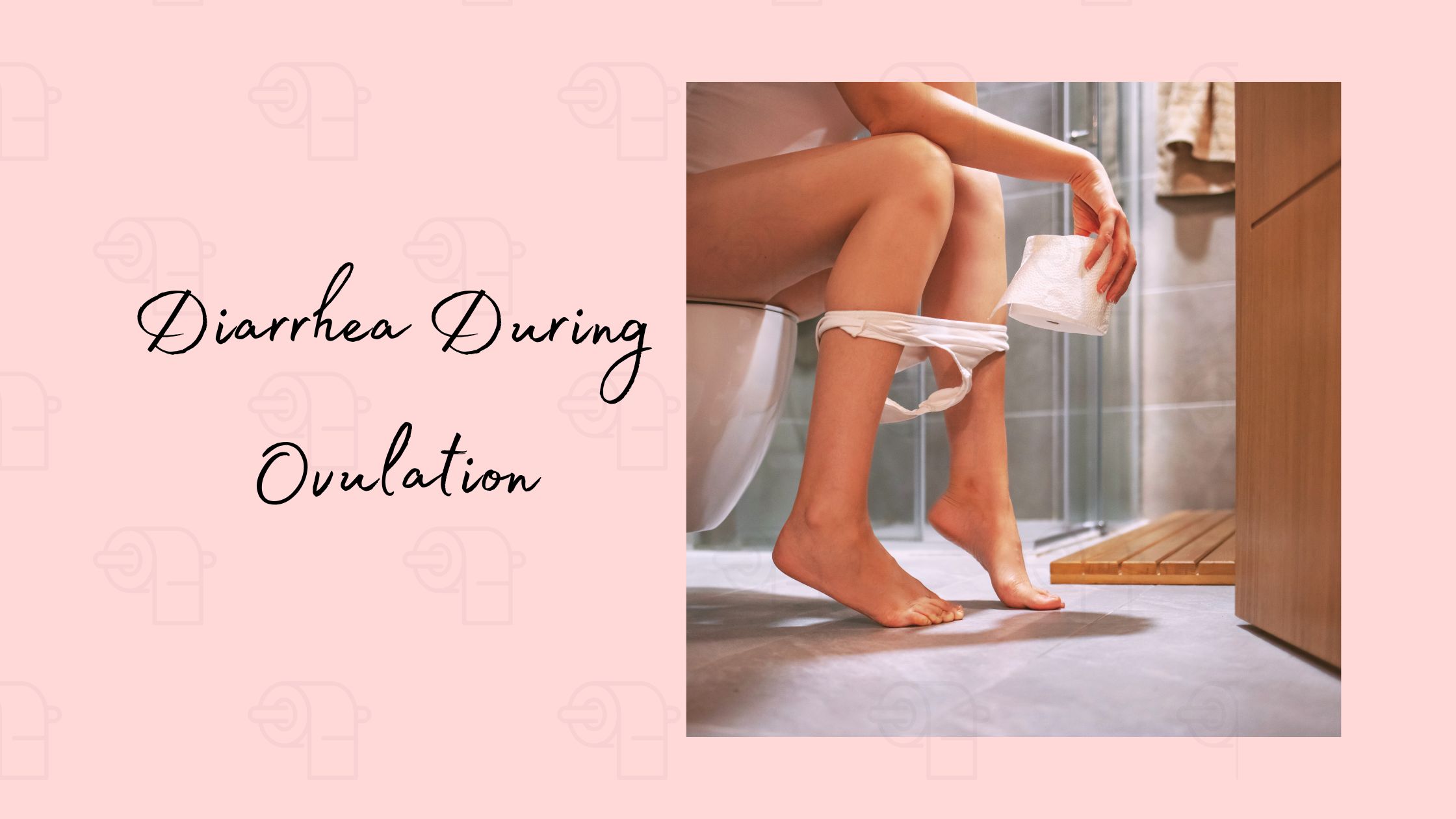Many women keep a hawk’s eye on ovulation due to to its important role in the baby-making process. But this monthly visitor can sometimes come with more baggage than just the possibility of getting pregnant.
Your menstrual cycle can bring along the not-so-pleasant symptoms of constipation, abdominal cramps, breast soreness, bloating, and water retention. Surprisingly, some women also experience diarrhea during this phase. As if menstruating wasn’t challenging enough!
You’re not alone in wondering, “Does ovulation affect my digestive system?”
Buckle up because this article will discuss the less-than-glamorous but vital topic: “What Causes Diarrhea During Ovulation?”
What is Ovulation?
To understand why you may experience diarrhea or upset stomach during ovulation, it’s essential to know first what ovulation is.
Ovulation is a crucial event in a woman’s menstrual cycle, occurring approximately midway through the cycle.
Ovulation is the phase of the menstrual cycle when a mature egg is released from the ovaries and travels into the fallopian tubes, where it can be fertilized by sperm.
Ovulation typically takes place about 12 to 16 days before the start of the next menstrual period.
Ovulation Symptoms
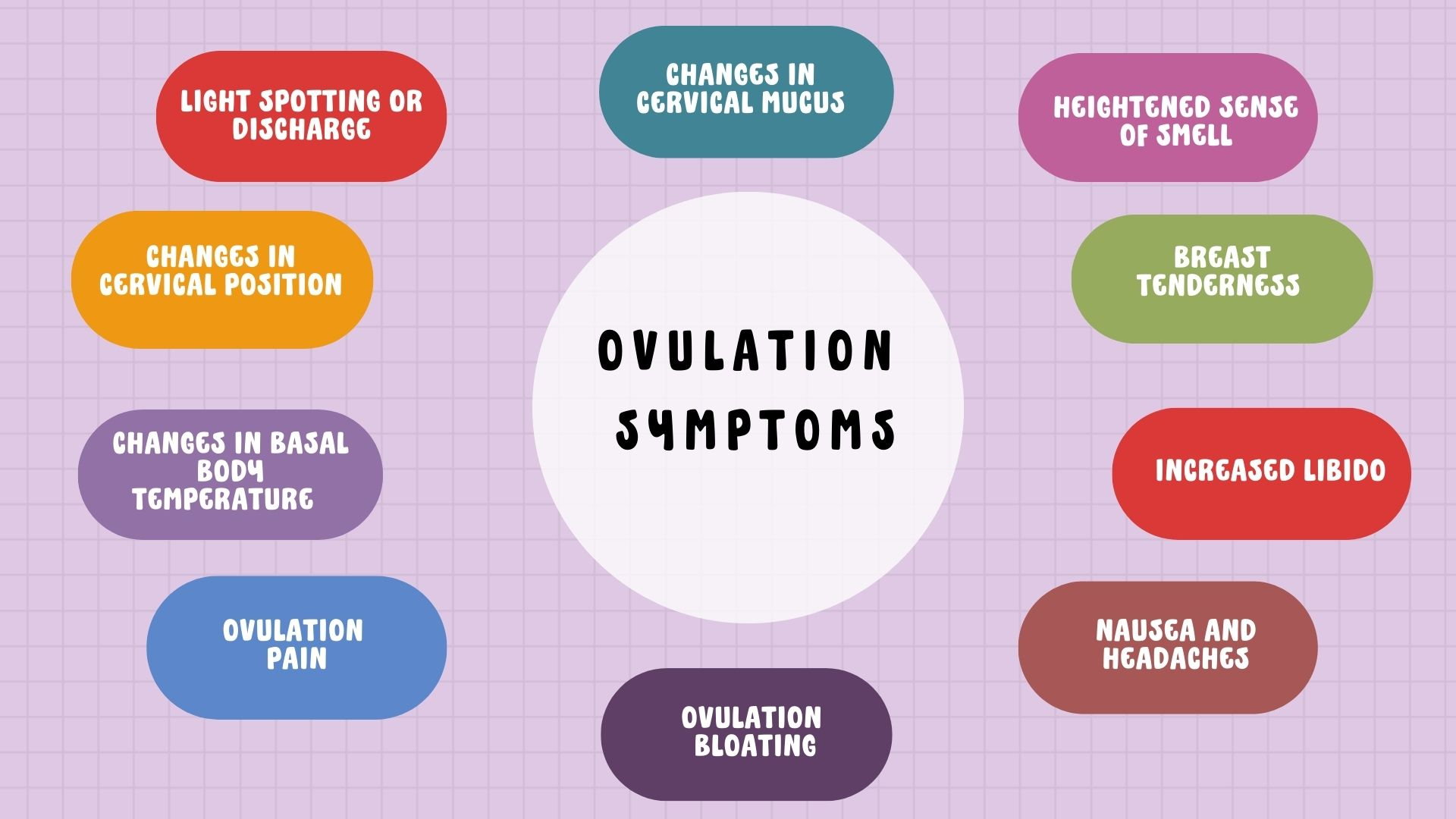
Ovulation is driven by hormonal changes, notably a surge in estrogen, which prepares the body for a potential pregnancy. As a result, some women may experience ovulation symptoms, including:
- Mild abdominal discomfort
- Changes in cervical mucus consistency
- Constipation
- Cervical changes
- Variations in sex drive
- Breast tenderness
- Light vaginal bleeding (known as ovulation bleeding)
- Nausea
- Headaches
- Changes in basal body temperature
- Upset stomach or diarrhea
- Ovulation pain (Mittelschmerz)
What Causes Diarrhea During Ovulation?
Among all ovulation symptoms, diarrhea is perhaps the most uncomfortable. To comprehend why ‘ovulation poops’ occur, it’s necessary to first learn about prostaglandins.
What Are Prostaglandins?
One of the primary culprits behind diarrhea during ovulation is the release of prostaglandins. Prostaglandins are hormone-like substances produced in the body, and their levels rise significantly during ovulation.
Prostaglandins are lipid compounds that act as chemical messengers in the body, regulating various physical processes, including inflammation, pain, and smooth muscle contractions.
Their primary function is to relax the smooth muscle tissues inside the uterus to facilitate the shedding of the uterine lining. They can also impact the intestines in the same way, leading to increased bowel movements and potential diarrhea during ovulation.
Research supports these physiological observations. For instance, a study of 156 respondents found that 73% experienced at least one primary gastrointestinal (GI) symptom pre- or during menses, with abdominal pain and diarrhea being the most common.
Another study found that 24% of women reported having diarrhea before menstruation and 28% during menstruation.
How Do Prostaglandins Cause Diarrhea During Ovulation?
During ovulation, the body releases prostaglandins, hormones that initiate the inflammatory response needed for the egg to be released from the follicle. The release of prostaglandin hormones can relax the smooth muscle tissues inside the uterus, assisting with the shedding of the uterine lining. Interestingly, these very prostaglandins can also affect the muscles in your bowels, causing them to relax. As a result, loose bowels can occur during ovulation.
Moreover, estrogen and progesterone hormone levels decline when you’re on your period, which can also lead to loose bowel movements. You might be familiar with this phenomenon, often called “period poops.” It’s all a natural part of your menstrual cycle.
Other Causes of Diarrhea During Ovulation
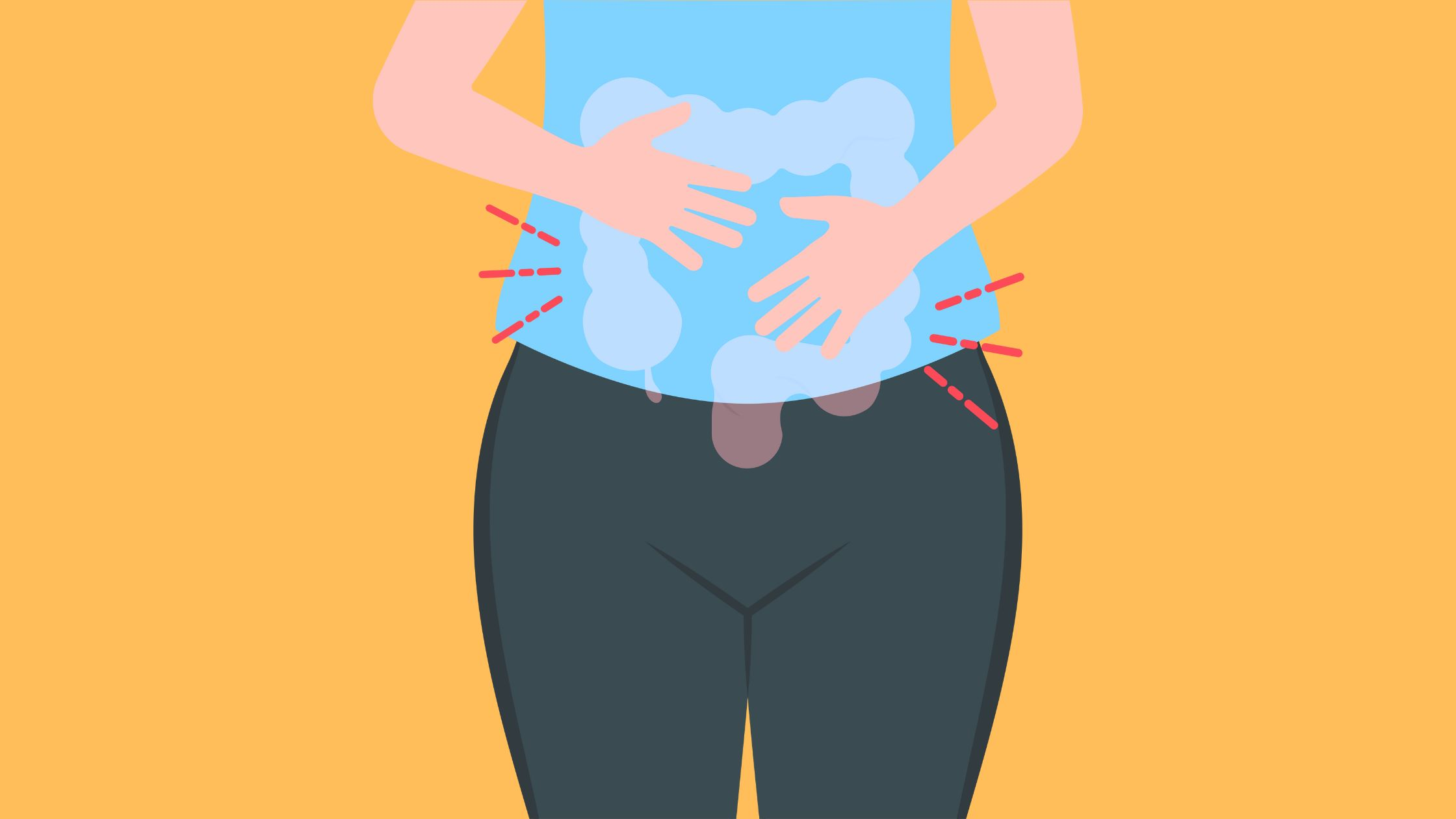
While prostaglandins are a primary cause of diarrhea during ovulation, other factors can also contribute to gastrointestinal issues during this time.
Ectopic Pregnancy
Ectopic pregnancy may lead to gastrointestinal symptoms likediarrhea while you’re in your ovulation window. An ectopic pregnancy is when a fertilized egg implants itself outside the uterus, typically within one of the fallopian tubes.
In addition to diarrhea, other ectopic pregnancy symptoms include:
- Abdominal pain on one side
- Discomfort and pain during urination or bowel movements
- Vomiting
- Diarrhea
- Shoulder pain
- Vaginal bleeding
Ectopic pregnancy is a serious medical emergency. If you suspect you might be going through an ectopic pregnancy, seek medical attention from the nearest healthcare professional immediately.
Endometriosis
Endometriosis is when the lining of the uterus grows outside of the uterus (including areas like the ovaries, vagina, fallopian tubes, intestines, rectum, cervix, and the area around the uterus). This condition can lead to loose stools or diarrhea. Additionally, endometriosis may also be responsible for the development of ovarian cysts.
Irritable Bowel Syndrome
During ovulation, Irritable Bowel Syndrome (IBS) can lead to diarrhea.
IBS comes with various symptoms, such as:
- Abdominal pain
- Changes in bowel movements
- Diarrhea
- Passing mucus from the rectum
- Bloating
- Excessive gas
- Incomplete evacuation after bowel movements
Other Period-Related Stomach Issues
Menstruation can cause stomach issues like bloating, water retention, constipation, and abdominal cramps, making a tough time even more challenging. Knowing these symptoms, their reasons, and how to manage them is important.
Constipation
The hormone progesterone can cause constipation in some and diarrhea in others. This hormone increases before ovulation, which can lead to constipation during this time.
Constipation is more than an infrequent bowel movement. It can mean hard-to-pass stool, causing belly discomfort, bloating, and a sense of uneasiness.
Eating spicy or unhealthy foods, irregular meals, or drinking too many fizzy drinks can make it worse. A balanced diet and regular meals help prevent recurring constipation.
Bloating
Bloating and gassiness are two problems that are not just confined to overindulgence during festive feasts. Instead, these can be daily battles for one in ten Americans, and this number increases in women during menstruation.
Bloating occurs when the stomach gets filled with air or gas, leading to a sensation of tightness and fullness in the abdomen. In some cases, it can also be caused by water retention or fluctuations in body fluid levels.
Water Retention
Also known as edema, water retention refers to excessive fluid build-up in the body tissues and can cause bloating and swelling.
During menstruation, changes in hormones can cause the body to retain more sodium and water, leading to a feeling of puffiness, particularly in the hands, feet, legs, and abdomen.
Although water retention is primarily a physiological process, certain lifestyle changes can help alleviate the symptoms. These include regular exercise, a low-salt diet, and staying hydrated.
Abdominal Cramping
Abdominal cramping or dysmenorrhea is one of the most common period-related complaints. It is a result of the uterus contracting to shed its lining. Sometimes, the cramping extends to the lower back and thighs and can range from mild to severe. It can also accompany other symptoms like nausea, vomiting, and diarrhea.
How to Ease Ovulation-Related Digestive Symptoms
If you experience diarrhea or digestive discomfort during ovulation, there are several remedies you can try to find relief.
Probiotics
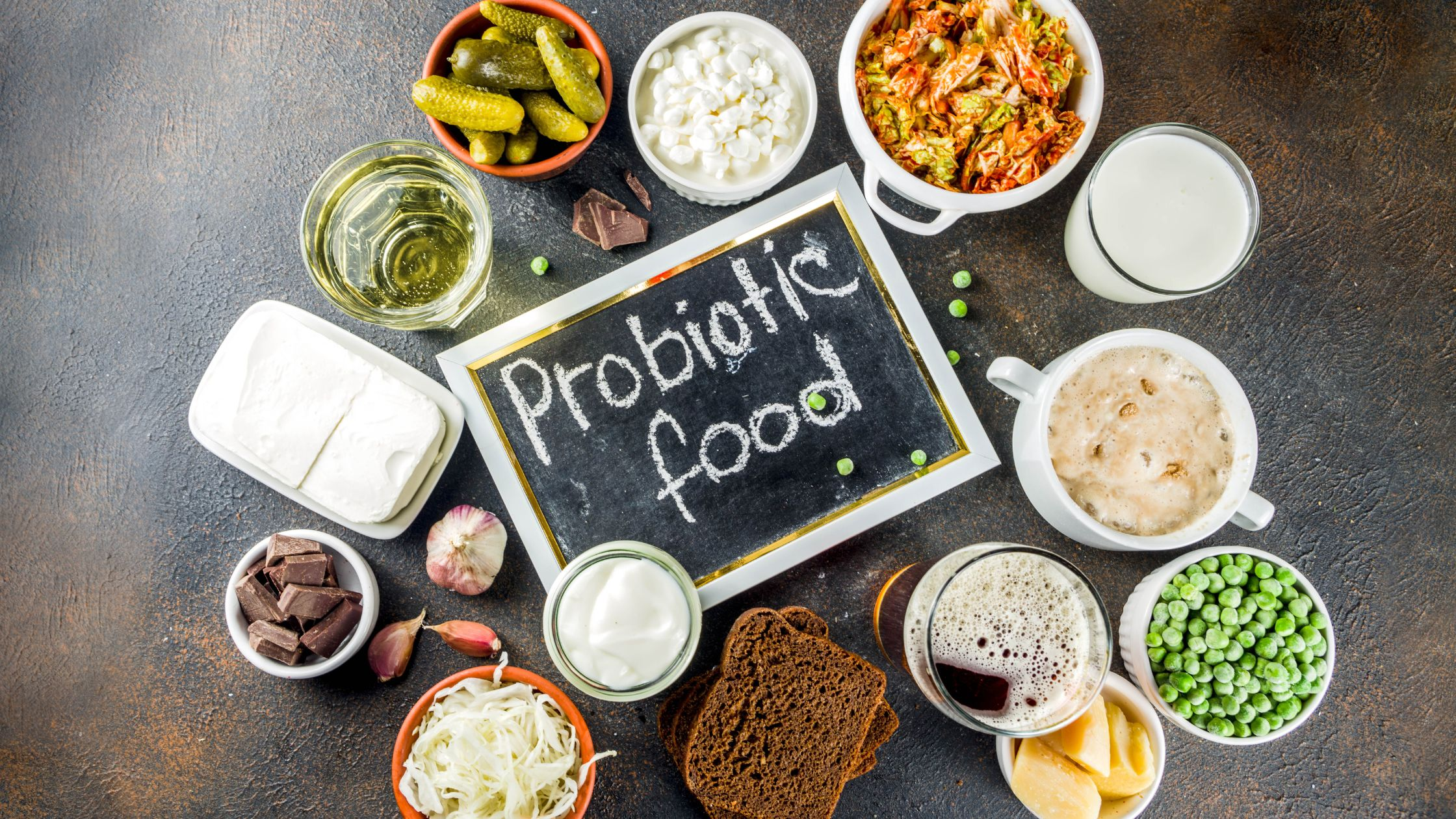
Probiotics can be an effective remedy for diarrhea experienced due to digestive problems during ovulation. Probiotics are the live bacteria and yeasts that help keep your guts happy.
The different types of probiotic microorganisms include:
Bifidobacterium — You’ve probably encountered it in some dairy products without knowing it! Studies show that this friendly bacteria can help ease digestive problems.
Lactobacillus — A superstar in the probiotic world. In fact, it’s one of the most common types you’ll find, often found in your favorite yogurts. It can tackle diarrhea, and certain strains can also be a blessing for lactose-intolerant people.
Saccharomyces Boulardii — A helpful yeast found in probiotics. It helps in preventing and soothing diarrhea and other digestive issues.
Calcium
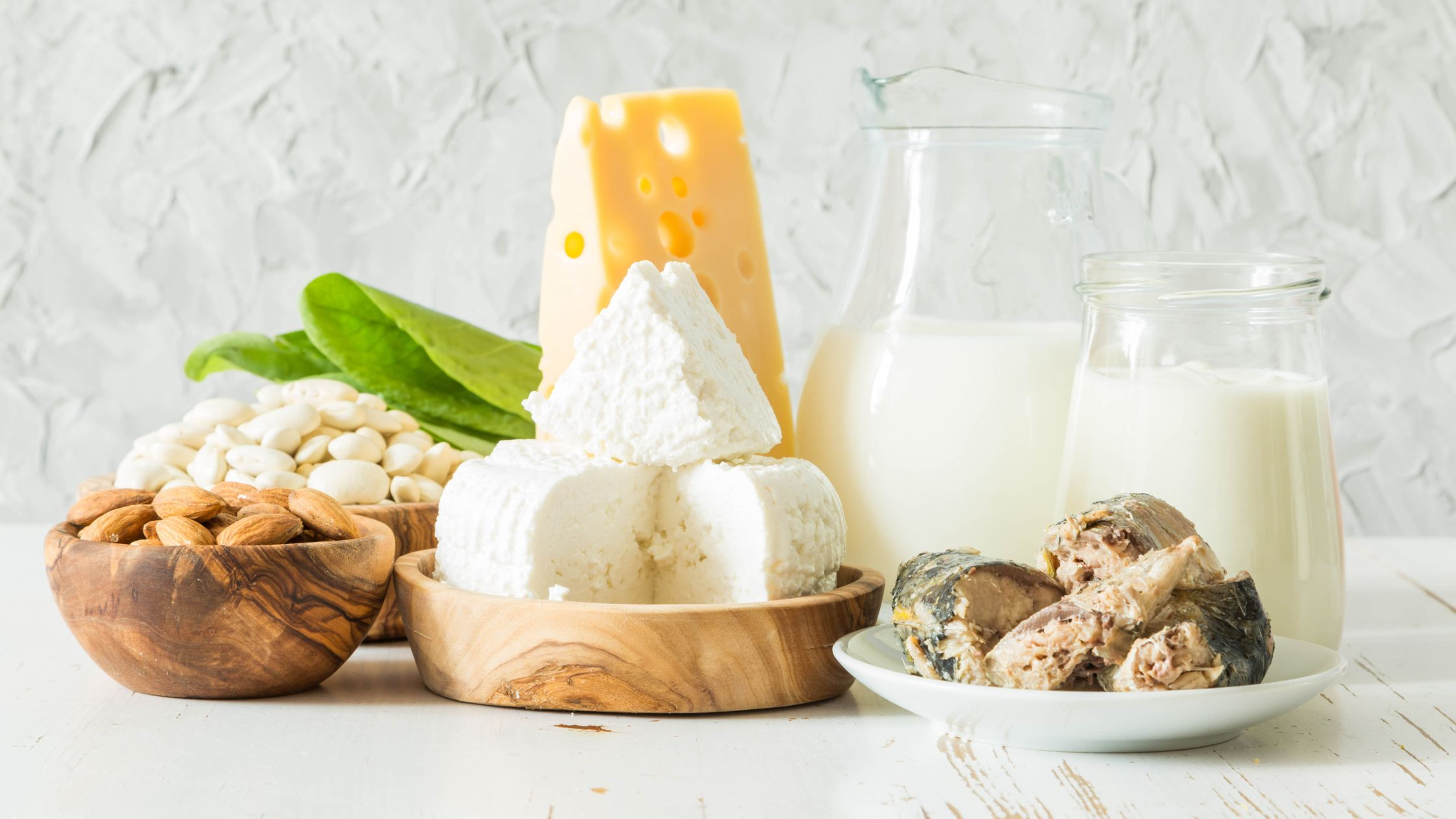
Calcium helps manage diarrhea during ovulation by balancing fluids and ensuring intestinal health. It can also contribute to the normal functioning of digestive enzymes, helping to alleviate some symptoms.
Calcium-rich foods help regulate bowel movements and counteract the impact of prostaglandins on the intestines.
Women can get calcium from various sources. Dairy products like milk, cheese, and yogurt are excellent sources. Non-dairy sources include green leafy vegetables like broccoli and kale, fish with soft, edible bones like sardines and salmon, and fortified foods like cereals and juices.
Calcium supplements may also be an option for those who struggle to get enough from their diet.
Fiber
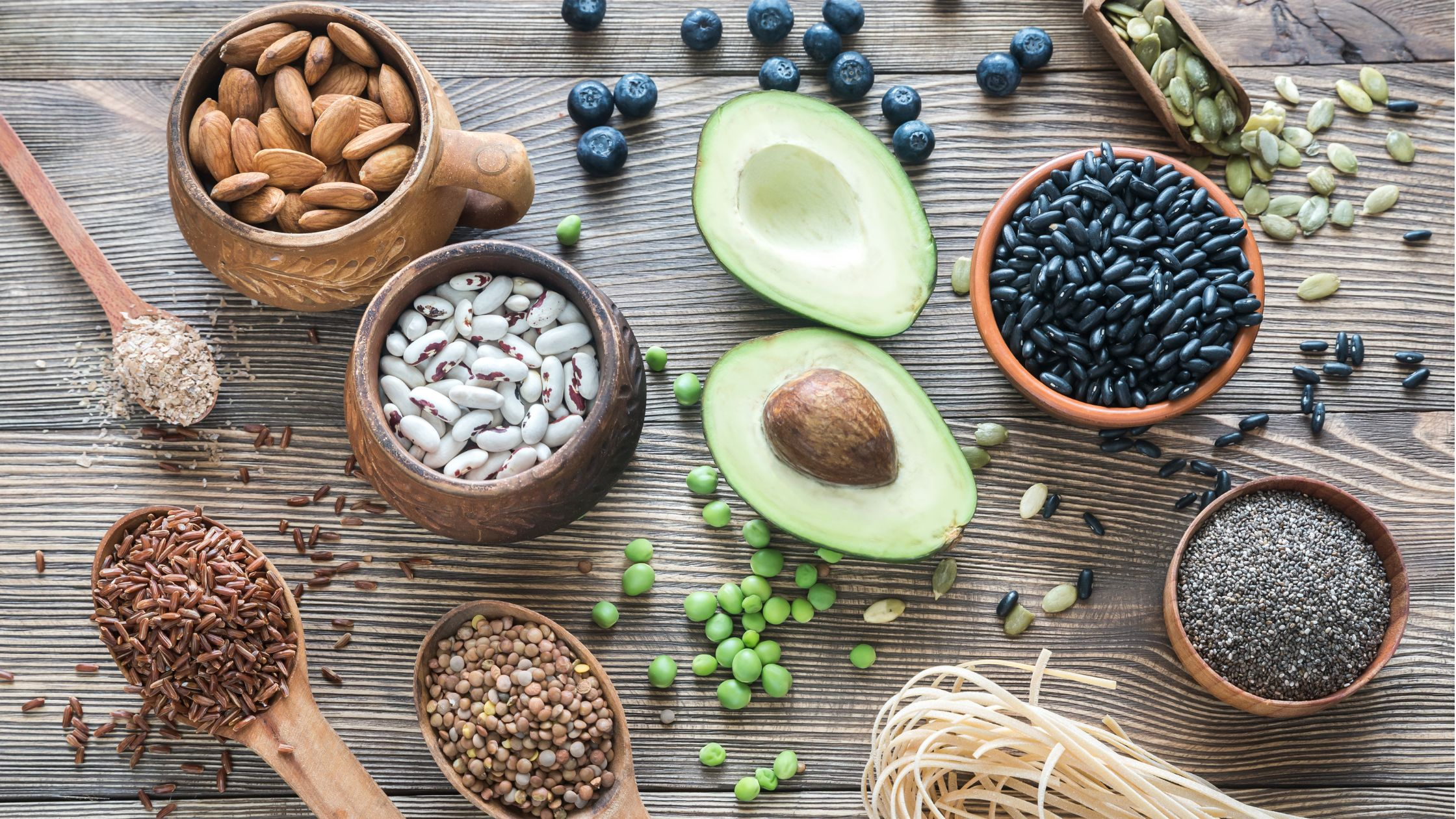
Fiber can help manage both diarrhea and constipation during ovulation. Soluble fiber absorbs water, can help bulk up stool and slow down its movement through the digestive tract, reducing diarrhea.
Insoluble fiber, on the other hand, adds bulk to the stool and speeds up its passage through the gut to alleviate diarrhea and constipation.
Whole foods, grain products, legumes, fruits, and vegetables are great sources of fiber intake. Nuts and seeds also provide a significant amount of dietary fiber.
Stay Hydrated

Water plays a crucial role in maintaining a healthy digestive system. During ovulation, hormonal fluctuations might disrupt regular digestive functions leading to diarrhea or constipation.
If you experience diarrhea, you could lose more water than usual, which can cause dehydration. Drinking sufficient water helps replenish lost fluids, keeping the body hydrated.
In the case of constipation, adequate water intake can help soften the stool and promote its easy passage through the digestive tract. Thus, staying well-hydrated can assist in managing both diarrhea and constipation during ovulation.
Takeaway
- Ovulation is part of a woman’s menstrual cycle, releasing a mature egg from the ovaries.
- Hormonal changes during ovulation can cause abdominal discomfort, constipation, breast tenderness, nausea, and diarrhea.
- Diarrhea during ovulation is often caused by prostaglandins, hormone-like substances that regulate inflammation and smooth muscle contractions.
- A decline in estrogen and progesterone levels can also lead to diarrhea during ovulation.
- Other potential causes include ectopic Pregnancy, endometriosis, and Irritable Bowel Syndrome (IBS).
- Period-related stomach issues include constipation, bloating, water retention, and abdominal cramping.
- To ease digestive symptoms during ovulation, remedies include taking probiotics, consuming calcium-rich foods and fiber, and staying well-hydrated.
References
Behrman HR, Anderson GG. Prostaglandins in Reproduction. Arch Intern Med. 1974;133(1):77–84. doi:10.1001/archinte.1974.00320130079006The Global Library of Women's Medicine. (n.d.). Prostaglandins and the Reproductive Cycle. Retrieved July 29, 2023, from https://www.glowm.com/section-view/heading/Prostaglandins%20and%20the%20Reproductive%20Cycle/item/313#Bernstein, M. T., Graff, L. A., Avery, L., Palatnick, C., Parnerowski, K., & Targownik, L. E. (2013). Gastrointestinal symptoms before and during menses in healthy women. BMC Women's Health, 14, 14. doi.org/10.1186/1472-6874-14-14WebMD. (n.d.). Why Am I So Bloated? Bloating Causes and Treatment. Retrieved July 29, 2023, from https://www.webmd.com/digestive-disorders/features/bloated-bloatingSzajewska, H., Albrecht, P., & Topczewska-Cabanek, A. (2009). Randomized, double-blind, placebo-controlled trial: effect of lactobacillus GG supplementation on Helicobacter pylori eradication rates and side effects during treatment in children. Journal of pediatric gastroenterology and nutrition, 48(4), 431–436. doi.org/10.1097/mpg.0b013e318182e716Savaiano, D. A., Ritter, A. J., Klaenhammer, T. R., James, G. M., Longcore, A. T., Chandler, J. R., Walker, W. A., & Foyt, H. L. (2013). Improving lactose digestion and symptoms of lactose intolerance with a novel galacto-oligosaccharide (RP-G28): a randomized, double-blind clinical trial. Nutrition journal, 12, 160. doi.org/10.1186/1475-2891-12-160McFarland L. V. (2010). Systematic review and meta-analysis of Saccharomyces Boulardii in adult patients. World journal of gastroenterology, 16(18), 2202–2222. doi.org/10.3748/wjg.v16.i18.2202
